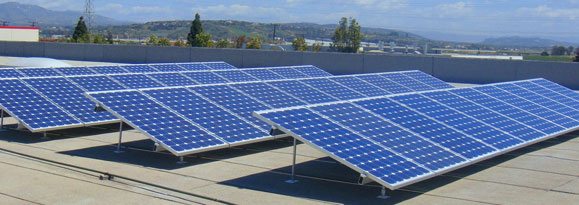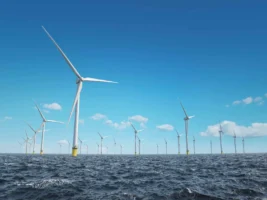Victoria’s electricity networks are making a major push into the commercial solar market as part of a broad strategy into new technologies that could put them in direct competition with electricity retailers.
The PowerCor and CitiPower networks which service Melbourne and much of regional Victoria, are also pursuing battery storage options – both at the customer and the grid level – and setting up a consultancy company as part of a strategy to deal with rapidly changing economics of solar and storage and a decentralised energy system.
Tim Rourke, the CEO of the two networks, which in turn are owned by the ASX listed Spark Infrastructure, has created a new division called energy solutions to pursue the “non-regulated” network market. And solar and storage will play a key role.
Rourke told analysts on Monday that 2,700 commercial customers in the state have expressed interest in installing rooftop solar, and his networks were interested in providing that service.
So far, it had already made bids to 25 customers, representing about 7MW of commercial solar – just a scratch on the overall market potential, but Victoria has now emerged as the second biggest market for commercial scale solar after NSW, according to industry analysts Sunwiz.
CitiPower operates the network in the Melbourne CBD and the inner suburbs and PowerCor operates mostly in the western suburbs and the regional western region of Victoira.
Together, they have relatively little solar PV, with about 13.4 per cent of household customers having solar PV in the Powercor network, and just 3 per cent in the inner-city CitiPower network. This compares to 23.9 per cent in South Australia and a similar figure in Queensland.
The push by the Victorian networks to provide rooftop solar for business customers could put the networks into direct competition with electricity retailers, who are also making a push into solar and storage and electric vehicles, attempting to build stronger relationships with their customers.
This sets the scene for a potentially fascinating turf war between the vertically integrated retailers and generators, and the network operators over who gets to integrate new technology such as solar and storage into their business model.
For the moment, Spark Infrastructure says it is not competing head on with retailers because it is targeting the commercial market, while retailers such as Origin Energy, AGL Energy and EnergyAustralia are targeting the household market.
“They (the retailers) don’t really have offering for large commercial customers, and we are not going head to head in the residential space,” Rourke told analysts in a conference call on Monday.
He said large corporate customers are reluctant to deal with retailers, because if there is an issue with connections, “it stops their business.”
He went on: “We don’t see a lot of activity in commercial space from retailers, mainly just in residential space.”
But it does foreshadow a potential battle between the network operators and retailers over who gets prime position in an energy system that becomes increasingly decentralized, with more consumers, both household and businesses, producing and storing their own electricity.
Networks see a future for themselves, because poles and wires will be required to share electricity in some form, and they see a future in energy services. Retailers are also looking to lock in customers for longer terms and to reduce “churn”.
White battery storage costs are expected to fall quickly and soon become part of a mass market, there is considerable debate about where the value can be captured between the networks and the retailers.
In Queensland, this is not so much of a problem, because Ergon Energy is both the network operator and the retailer. It is trialling battery storage solutions in a trial that will see houses operate as a “virtual power station”, potentially providing savings on both network costs and generation costs.
In other states, however, the network operator and the retailer are separate entities. Some analysts think this may have to be changed in a decentralised market.
“We want to be preferred supplier of whatever needs that customers wants,” Rourke said. “We know for a fact that they want network services, but they are also increasingly looking at commercial solar and battery storage.
PowerCor is also pursuing grid-level battery storage, and will install a 2MWh lithium ion storage array – Australia’s biggest to date – near Ballarat. Rourke says it will improve reliability, and defer network spending.
Rourke says such arrays are unlikely to be deployed at large scale, but “it is inevitable we will use them to defer capital expenditure and improve reliability in the future.”
Regulatory mechanisms that might have encouraged more such installations were last week deferred for five years, meaning that networks will not receive any regulatory incentive to invest in battery storage rather than networks until the next five year spending period is negotiated in 2019-2021.
Critics say this could result in $4-$12 billion of un-necessary network expenditure across Australia.











